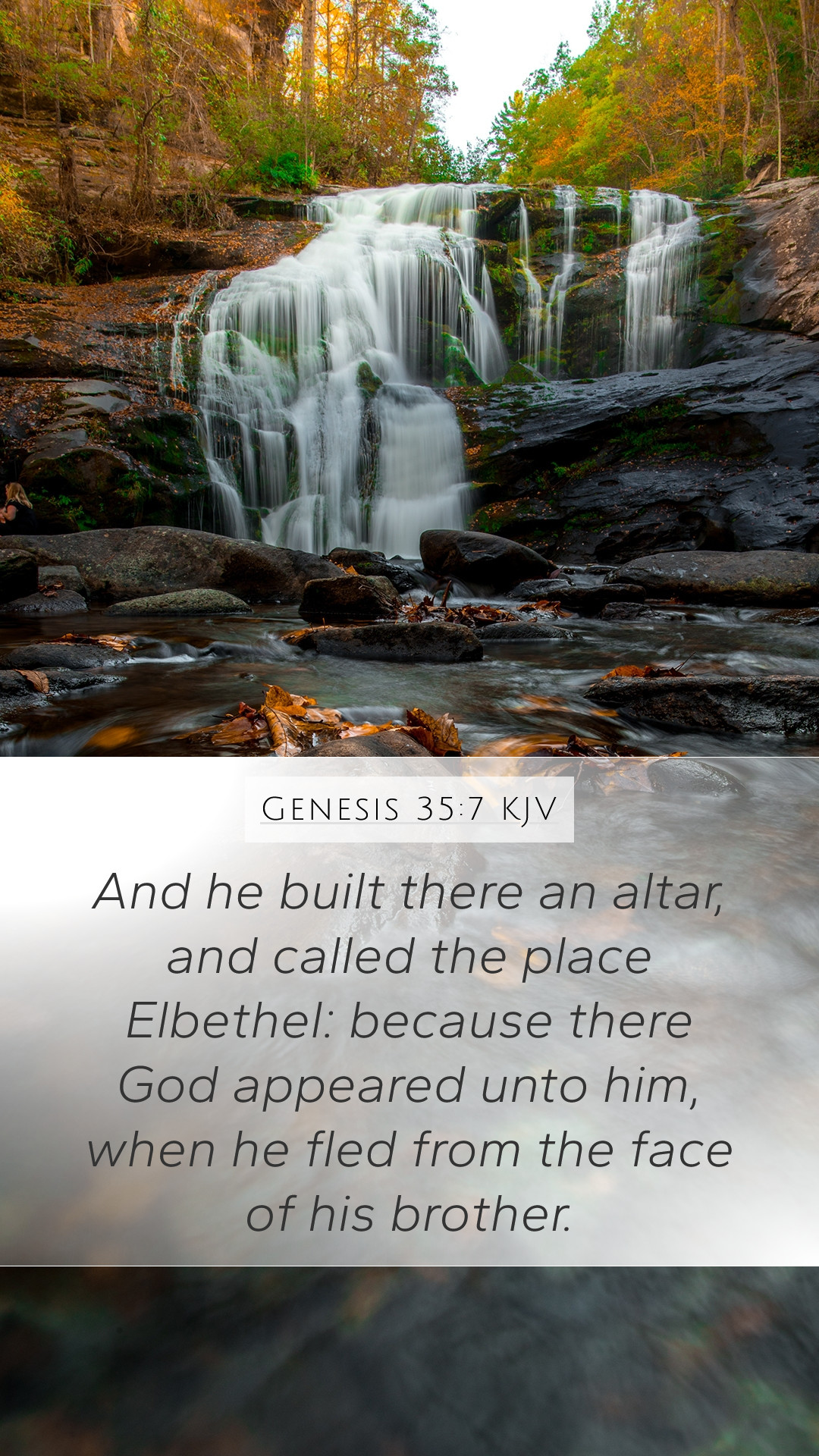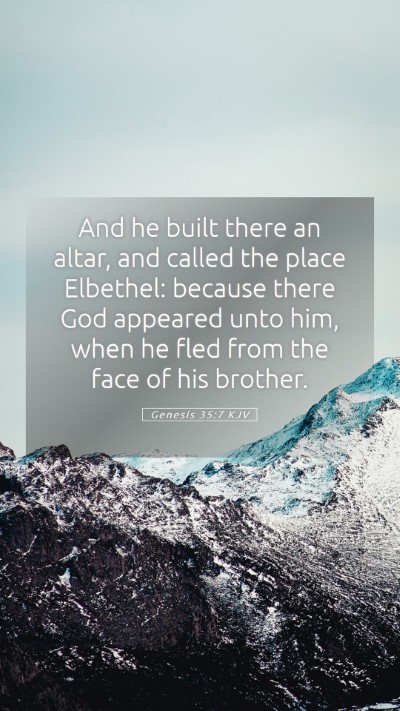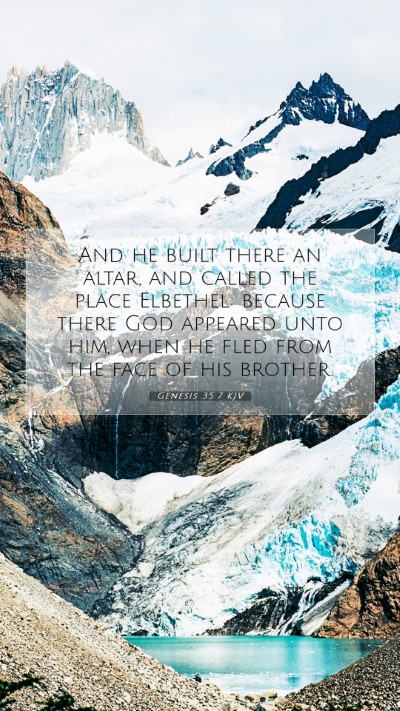Understanding Genesis 35:7
Genesis 35:7 states: "And he built there an altar, and called the place EleloheIsrael: for God appeared unto him when he fled from the face of his brother." This verse carries profound meaning within the broader context of Jacob's life and his relationship with God.
Contextual Background
Jacob, having fled from Esau, his brother, seeks to reconnect with God. This moment reflects his ongoing spiritual journey and obedience to God's command. The naming of the altar, "EleloheIsrael," signifies a personal dedication and an acknowledgment of God's presence. Genesis 35:7 serves as a pivotal point in Jacob's transformation and commitment to God.
Commentary Insights
-
Matthew Henry's Commentary:
Henry asserts that this altar signifies Jacob's renewed commitment to God. The term "EleloheIsrael" emphasizes God's relationship with Israel (Jacob). It serves as a reminder that God met Jacob during his time of distress and that divine encounters often come in our moments of need.
-
Albert Barnes' Commentary:
Barnes notes that the altar represents a place of worship and sacrifice, where Jacob acknowledges God's past deliverance. Building an altar is indicative of Jacob's gratitude and recognition of God’s providential care throughout his life.
-
Adam Clarke's Commentary:
Clarke emphasizes the significance of the altar, suggesting it served as a physical monument to Jacob’s experience with God. The construction of an altar was a common practice for patriarchs as a way to commemorate divine encounters and was integral to their worship practices.
Theological Implications
This verse articulates several theological themes important for Bible verse meanings:
-
God’s Presence: Jacob's encounter emphasizes that God is ever-present, particularly in our trials. The acknowledgment of God's presence is crucial for spiritual growth and understanding God’s plan for our lives.
-
Worship and Sacrifice: The act of building an altar signifies worship through sacrifice. This illustrates a fundamental principle of engaging with God—recognizing His lordship and giving thanks for His mercy.
-
Personal Relationship with God: Jacob calls the altar "EleloheIsrael," which translates to "God, the God of Israel." This reflects a deepening personal relationship and commitment to God, highlighting individual worship as an essential aspect of faith.
Application for Today
In applying Genesis 35:7 to daily life:
-
Building Altars in Our Lives: Just as Jacob built an altar, we should create moments of worship in our lives, recognizing God's providence and presence in our circumstances.
-
Acknowledging God in Challenges: This verse encourages believers to acknowledge and seek God during challenging times, reaffirming faith and commitment to His guidance.
-
Personal Testimonies: Sharing our encounters with God strengthens our faith and serves as a testimony to others, just as Jacob's altar marked a significant moment in his spiritual journey.
Cross References
This verse connects to several others that highlight its themes:
- Genesis 28:16-19: Jacob’s initial revelation of God at Bethel and the establishment of a sacred place.
- Genesis 32:30: Jacob’s encounter with God, where he wrestles and receives the new name Israel.
- Exodus 3:4-6: God revealing His presence to Moses, underscoring the significance of acknowledging holy ground.
Conclusion
Genesis 35:7 encapsulates the essence of transformation and worship within the faith journey. Through this verse, we gain Bible verse insights that encourage a deeper Bible verse understanding, serving as an invaluable part of our Bible study and Scripture analysis. The sacrificial act of building an altar becomes a timeless expression of gratitude, loyalty, and connection with God.


